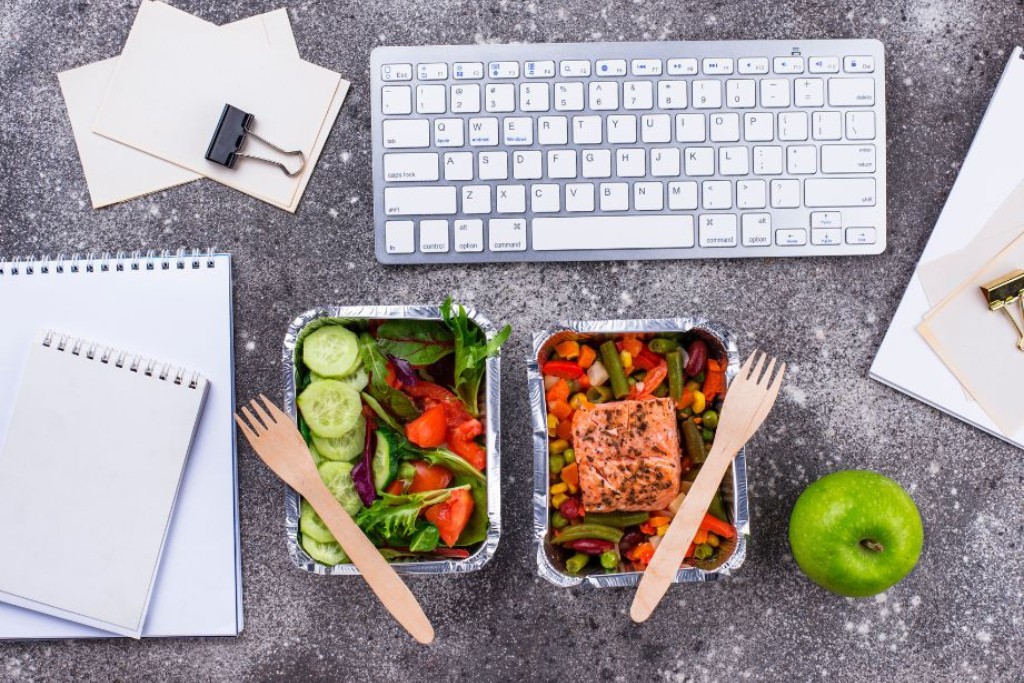Does Running Help Lose Weight – Running is one of the most popular exercises one can do. Besides promoting physical fitness, it’s also an excellent way to boost energy levels, self-confidence, self-esteem, and cognitive abilities.
What’s more, running is free and can be done anywhere. More importantly, you don’t need any special equipment or a gym to get started. If you still aren’t convinced on why you should incorporate this exercise into your daily routine, stick with us as we walk you through various means by which this activity promotes your general well-being, and more particularly, how it enhances weight loss.
Why You Should Consider Running for Weight Loss
Numerous science-backed reports highlight the various effects running presents to those looking to shed excess weight. The following section throws light on some of Weight Loss Benefits of Running.
A Faster Way to Burn Calories
Exercising promotes weight loss since you burn more calories than you ingest. Running for Weight Loss is a fantastic exercise option because it needs several different muscles to work together to burn more calories than most other types of exercise.
A study on 24 individuals evaluates how many more calories were expended running 1 mile (1,600 meters) against walking the same distance on both track and a treadmill. Running 1 mile on the track burns an extra 35 calories than walking while running the same distance on the treadmill burns an extra 33 calories compared to walking.
At first glance, 33–35 calories may seem insignificant. However, this is equivalent to 660–700 calories over a distance of 20 miles.
Induces Metabolism Changes
Running for Weight Loss is one of the high-intensity workouts that keep the body in an accelerated state even when it’s not being used. This implies that even after you’ve completed exercising, your body is still burning calories. This results in an enhanced metabolic rate and keeps the body machinery active, helping you to prevent excessive weight gain.
Protects Your Heart Health
Running is associated with a healthy heart as it promotes an active cardiovascular system. When you run, your heart rate rises, putting the arteries and blood vessels to work and keeping them healthy. Regularly engaging in a run can also help prevent diseases like high cholesterol and diabetes — potential risk factors and complications of excessive weight gain/obesity.
Enhances Sleep Quality
Running for a minimum of 30 minutes regularly can yield significant improvements in your sleep quality. This also applies to those that engage in other high-intensity exercises — a short run will help you sleep better than someone who barely jogs. This is of significant importance since research links adequate sleep to better obesity management.
These Running Benefits for Weight Loss manifest in the quality and quantity of your sleep — you’re more likely to drift into sleep in no time, with most of your sleep time spent in the deep sleep stages, essential for physical recovery. However, there’s a twist to this; it’s vital not to run right before jumping into bed. This is because exercise prompts a release of endorphins, boosting brain alertness and making it difficult for some to sleep. For best results, it’s best to exercise at least two hours before sleeping.
Gives You a Better Appearance
Running for about 30 minutes thrice weekly can yield visible body improvements such as well-developed muscles, improved weight loss, and brighter, healthier skin in no time. Stronger muscles enable you to benefit maximally from gym sessions, while enhanced aerobic fitness allows you to take on activities that may have proved difficult in the past.
It May Help You Live Longer
This may appear as a bold claim, but studies certainly back it up. Consistent, shorter runs can boost your fitness level and extend your life expectancy. Namely, a 2019 meta-analysis reveals that running is associated with a 27% reduction of all-cause mortality.
There are numerous reasons for this — enhanced blood circulation, lowered blood pressure, reduced stress hormones, an optimal balance of good and bad cholesterol, etc.
Maintains a Negative Energy Balance via Appetite Suppression
After a long run, what do you yearn for? Yes, you guessed right; a large glass of water or some other drink that provides hydration.
Following a run, the brain is instinctively drawn to low-calorie, high-water-content foods due to the thirst experienced by the body. This significantly aids the maintenance of a negative energy balance as well as weight loss through running.
Promotes Healthy Eating Habits
After a strenuous run, your body requires good foods to help your muscles recuperate. Fueling the body with healthful, low-calorie foods rather than those high in fat and empty calories makes the body feel much better — since they avoid excessive weight gain and promote weight loss. When you religiously stick to these habits, the body gradually responds positively to healthy feeding patterns, prompting the mind to adopt healthy eating habits.
How Much Running Should You Do to Lose Weight?
Running for 45 minutes to 1 hour three to four times per week is sufficient for weight loss. For better results, running should be paired with a nutritious, well-balanced diet to keep you fit and ready to run and push yourself even further. Additionally, the intensity with which you take those strides also affects how much weight you lose while you run.
Tips to Optimize Weight Loss via Running
Sometimes, running alone isn’t enough. In such cases, the following tips may come in handy if you seek better results.
Drink a Cup of Tea Before Running
The intake of green tea extract for just four weeks has been found to boost running distance by 10.9% in men. Hence, taking a cup of green tea just before running may help you cover more ground while running.
Eat More Slow-Digesting Carbs
Because slow-carb foods take longer to digest, they keep you feeling full and energized for longer. This prevents unnecessary snacking throughout the day.
Consume Carbohydrates the Night Before Your Run
The reason behind this is explained by the term ‘diet-induced thermogenesis.’ When taken a night before a run, these carbs are digested the following day, prompting the body to burn more calories due to an enhanced energy expenditure/metabolic rate.
Consume Some Chocolate After Running
Researchers at UC San Diego discovered that runners who eat chocolate have a thinner body than those who don’t.
Consume Quinoa
Quinoa is high in protein and includes the complete chain of amino acids required for muscle growth and fat removal, resulting in weight loss. It’s also high in betaine, a substance that keeps belly fat in check.
Hit and Monitor Your Running Goals With the Strive App
It’s one thing to make up your mind to engage in running tasks; it’s another to ensure you’re achieving your desired results via this activity. The Strive Weight Loss Challenge App provides an excellent means of monitoring running indexes like body fat percentage, body mass index (BMI), distance in miles, number of steps, etc. You can also check your weight on the app when you connect it to a Smart Scale.
In addition to these, it makes your running even more fun by providing you with a platform that allows you to compete with family and friends’ fitness goals easily. Download the Fitness Competition App from the App Store today to easily monitor your activity and progress all from your Apple Watch.
What are the benefits of running?
Running is well-known for its health, weight-loss, and fitness benefits. Running, as an aerobic workout, burns a substantial quantity of calories, averaging 850 calories per hour, and can help you maintain a healthy weight. Running can boost your capacity to thrive in other sports and activities, as well as provide several health benefits such as cardiovascular, mental, joint, and general wellness improvements. Running can also improve your lifestyle by helping you meet new people, distracting you from the worries of life, allowing you to appreciate the outdoors and environment, and even improving your sleep, energy, and memory.
How do you get started running?
If you're considering taking up running as a hobby, fitness, or even for races like marathons, it's advisable to start slowly. If you're new to fitness, start with short walks and gradually increase the length of time until you feel ready to ramp up the speed and start running. It's also fine to walk throughout your runs to avoid overworking yourself or injuring yourself.
Beginner runners should take it slow and steady, as becoming too fatigued or even injuring yourself too soon might affect your motivation and running routine. It's best to start with runs of 10-15 minutes and progressively raise your pace by a couple of minutes over time until you've acquired a respectable level of fitness or have strengthened your stamina with a foundation of walking.
What is best to eat and drink before and after a run?
Dietary requirements are determined by your workout goals. A runner preparing for a marathon and a runner wanting to lose weight would have different needs in order to obtain the best results, but a running diet can be very adaptable. When running, the single essential feature is hydration; it is essential that your body is properly hydrated before, during, and after exercise, whether through sports drinks or water.
In general, exercising right after eating is not a good idea because it causes cramps and indigestion; therefore, a little snack before jogging or waiting 1-2 hours after eating is recommended. A high carb food is good for your run since it provides a rich supply of energy, followed by high carb and protein items after your run to aid muscle and energy recovery.
Will running reduce your abdominal fat?
Running is a highly effective fat-burning activity. In fact, when it comes to losing weight, it's unbeatable. Running for 10 minutes at a steady speed burns 170 calories for a runner who weighs 180 pounds. If that same person runs for 30 minutes, he or she will burn almost 500 calories. Long runs, on the other hand, will not help in the reduction of abdominal fat. To move those issue regions, you must also make nutritional and behavioural adjustments. It's possible to have stubborn belly fat even if you're a regular runner who watches what you eat. In many situations, this can be traced back to a poor diet. Even seasoned runners can make poor food decisions.
How often should you run?
The frequency with which you run is entirely dependent on your ability and availability; most runners require at least one or two days a week off from running, which can be replaced by rest or another kind of exercise. As vital as exercise is, you can burn out your body and even acquire ailments if you don't recuperate; taking days off can help your body and mind rest. A beginner runner should aim to run three times a week, with frequent rests to recover from the unique pressure placed on your body, but this depends on how you react to running, your schedule, how long you need to recover, and what your goals are.
Is it better to run on a treadmill or outdoors?
Any type of running, whether done outdoors or indoors, is beneficial, but the two differ in a variety of ways, so deciding which is best is a personal choice. Treadmills pull the ground beneath your feet, propelling you forward with less friction and making running simpler. Beginner runners will benefit from this because the surroundings and settings will be less demanding. Treadmills are also padded, making them easier on the joints if you have injuries or problems. Outdoor running, on the other hand, is great for pushing and working your body harder while avoiding the convenience of a stop button and a television in front of a treadmill in the gym.
What are the benefits of a morning run?
Go for a morning run if you want to reduce weight quickly. Most people run on an empty stomach in the morning. As a result, your body will begin to burn body fat in order to produce energy and keep you going during your tough running session. You will lose weight quickly as a result of this. When you run first thing in the morning, your body absorbs more oxygen. This means that all of your muscles, tissues, and cells will be well-nourished. It also jump-starts your metabolism, resulting in more energy throughout the day. Running first thing in the morning can help you overcome depression. This makes you feel happy and positive.



